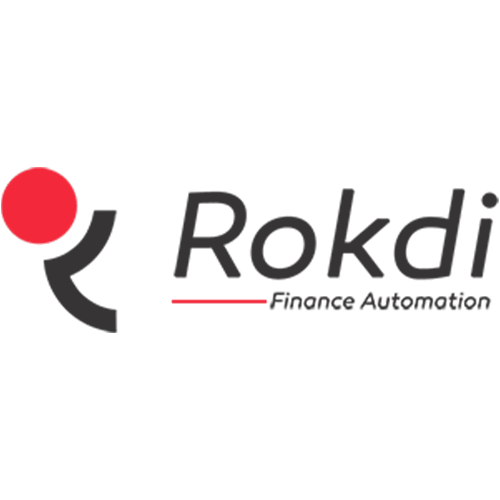Description

Rokdi

Shipway
Comprehensive Overview: Rokdi vs Shipway
As of my last update, Rokdi and Shipway are distinct services targeting different niches in the business and logistics sectors. Here's a comprehensive overview of each:
Rokdi
a) Primary Functions and Target Markets
- Primary Functions: Rokdi is essentially an employee management and tracking tool often categorized under workforce management software. It focuses on helping businesses monitor employee productivity, manage attendance, and streamline payroll processes.
- Target Markets: Its primary market includes small to medium-sized enterprises (SMEs) looking for efficient workforce management solutions. It is particularly useful for industries with a large number of hourly employees or remote workers, such as retail, manufacturing, and service industries.
b) Market Share and User Base
- Rokdi caters primarily to the Indian market, where there is considerable demand for cost-effective and straightforward employee management solutions. While not a market leader globally, Rokdi is gaining traction in regional markets due to its affordability and ease of use, leading to a growing user base among SMEs in India.
c) Key Differentiating Factors
- User-Friendly Interface: Rokdi offers an intuitive interface that doesn’t require extensive training.
- Regional Focus: Tailored to the Indian market, catering to specific compliance and payroll needs prevalent in the region.
- Cost-Effectiveness: Positioned as an affordable solution for SMEs looking to manage their workforce without heavy investment.
Shipway
a) Primary Functions and Target Markets
- Primary Functions: Shipway is a logistics and e-commerce enablement platform. It provides real-time shipment tracking, notifications, and efficient returns management. The platform aims to improve customer experience by offering transparency and streamlined logistics operations.
- Target Markets: Shipway targets e-commerce businesses, logistics companies, and retailers who need robust logistics solutions. It’s suitable for businesses of various sizes from small e-commerce startups to larger enterprises with comprehensive logistics requirements.
b) Market Share and User Base
- Shipway has a more globally dispersed user base, with significant usage among internet-based retailers who need efficient tracking and seamless order management solutions. It has a competitive share in the e-commerce tools market, especially in regions experiencing rapid growth in online retail.
c) Key Differentiating Factors
- Comprehensive Integration Capabilities: Shipway integrates with various e-commerce platforms like Shopify, Magento, and WooCommerce, facilitating seamless logistics management for businesses.
- Focus on Customer Experience: Shipway provides value-added services such as automated notifications and branded tracking pages, enhancing the end-user experience.
- Versatility in Return Management: Offers robust solutions for managing returns which can be a critical differentiator for e-commerce and logistics companies.
Comparative Analysis
While Rokdi and Shipway operate in overlapping spheres of business productivity and efficiency, they serve very different needs within this domain. Rokdi is focused on optimizing internal workforce management, while Shipway is designed to enhance logistics and customer interactions in the external supply chain. Therefore, they do not directly compete, and their differentiation lies in addressing distinct operational challenges for their targeted sectors.
Contact Info

Year founded :
Not Available
Not Available
Not Available
India
http://www.linkedin.com/company/rokdi

Year founded :
2009
+92 52 4269191
Not Available
Pakistan
http://www.linkedin.com/company/shipwaylogistics
Feature Similarity Breakdown: Rokdi, Shipway
As of my last update in October 2023, I don't have detailed or specific information about a product called "Rokdi." However, I can provide a general analysis based on typical features found in platforms like Shipway, which focuses on shipping and logistics, including tracking and management solutions. I'll offer a hypothetical comparison as if Rokdi is a product in a similar domain. If Rokdi is not in the logistics space, the points might not entirely align. You might want to provide more details for precise information.
a) Core Features in Common
Assuming Rokdi is also a logistics or shipping-related platform, typical core features they might have in common include:
-
Shipment Tracking: Both platforms likely offer shipment tracking that allows customers to follow their parcel status in real-time.
-
Carrier Integration: Integration with multiple carriers is a standard feature that enables managing shipments from various couriers in one place.
-
Notifications and Alerts: Customers might receive updates via SMS, emails, or push notifications about the status of their shipments.
-
Dashboard and Analytics: A feature providing insights into shipment performance and other logistics metrics could be common.
-
Order Management: Management of orders from initial stages to delivery, helping streamline operational workflows.
b) Comparing User Interfaces
When comparing user interfaces:
-
Design: Shipway typically focuses on a user-friendly design that emphasizes clarity and easy navigation through different features. If Rokdi has the same target market, it likely follows a similar design philosophy to minimize the complexity involved in logistics management.
-
Ease of Use: Both platforms are expected to cater to businesses of varying sizes, which means their UIs are designed to facilitate ease of use regardless of the user's technical knowledge.
-
Customization: Modern applications often allow some level of customization in the UI to adapt to specific organizational needs, which might be common in both platforms.
c) Unique Features
Shipway:
-
Post-Purchase Engagement: Shipway offers features that focus on engaging customers post-purchase through feedback mechanisms and review systems. This adds value beyond mere logistics tracking.
-
Returns and Reverse Logistics Support: A robust mechanism for handling product returns and reverse logistics is offered by Shipway, which might not be as comprehensive in a similar platform.
Hypothetical Rokdi Unique Features:
-
Specialized Industry Solutions: If Rokdi specializes in particular industries (e.g., temperature-sensitive goods), it might have features tailored to those sectors like temperature tracking.
-
Flexible API Solutions: An extensive set of APIs allowing deeper customization or integration with existing enterprise solutions could set it apart from competitors.
-
Innovative Data Analytics: Advanced analytics features offering predictive insights or enhanced automation capabilities can differentiate it from alternatives.
In summary, while shared features form the backbone of competitive products, unique differentiators, like specialized industry solutions or advanced analytics, can make significant distinctions. For detailed comparison, it’s always best to refer to the latest product documentation or conduct trials of both platforms.
Features

User-Friendly Interface
Comprehensive Reporting
Real-Time Expense Tracking

Customer Engagement
Order Tracking
Returns Management
Data Analytics
Best Fit Use Cases: Rokdi, Shipway
Rokdi and Shipway serve distinct purposes and are tailored to different needs, making them suitable for various business types and scenarios. Here’s how each fits in:
Rokdi
a) Best Fit Use Cases for Rokdi:
Rokdi is primarily a workforce monitoring and productivity tracking tool, making it ideal for:
- Freelance Platforms and Agencies: Rokdi is suitable for businesses that manage remote or freelance workers and need to monitor productivity and work hours.
- Small to Medium-sized Enterprises (SMEs): SMEs looking to optimize employee output and gain insights into work patterns can benefit from Rokdi’s tracking capabilities.
- Startups: Startups that are in phases of establishing disciplined work cultures and need to ensure accountability and productivity can leverage Rokdi's functionalities.
- Project-based Teams: Teams working on a project basis, where tracking time against set goals is crucial, will find Rokdi helpful in maintaining oversight and meeting deadlines.
d) Catering to Different Industry Verticals or Company Sizes:
Rokdi caters mainly to tech-driven industries, digital marketing firms, and service-based companies. It is particularly useful for small and medium-sized businesses where workforce productivity directly impacts profitability. Rokdi's tools are scalable allowing them to support growing teams.
Shipway
b) Preferred Scenarios for Shipway:
Shipway is a comprehensive platform for shipment tracking and customer communication, making it ideal for:
- E-commerce Businesses: Online retailers that need to offer real-time shipment tracking and updates to their customers will find Shipway crucial for enhancing customer experience.
- Logistics and Supply Chain Companies: Companies involved in logistics and supply chain management can use Shipway to streamline operations and improve transparency across the shipping process.
- Direct-to-Consumer (DTC) Brands: Brands selling directly to consumers that require seamless delivery experiences can benefit greatly from Shipway’s automated notifications and tracking.
- Customer Service Departments: Businesses that wish to reduce customer inquiries related to order status and delivery can leverage Shipway’s proactive communication features.
d) Catering to Different Industry Verticals or Company Sizes:
Shipway addresses the needs of retail, wholesale, and logistics industries, offering solutions that scale from small e-commerce startups to large enterprises with extensive shipping needs. Its services are integral to businesses that rely heavily on shipping for customer satisfaction and operational efficiency.
In summary, Rokdi is best suited for businesses focused on internal employee productivity and project management, while Shipway excels in scenarios where shipping and customer communication are key. Both tools provide scalable solutions tailored to their respective industry needs and company sizes.
Pricing

Pricing Not Available

Pricing Not Available
Metrics History
Metrics History
Comparing teamSize across companies
Conclusion & Final Verdict: Rokdi vs Shipway
To provide a conclusion and final verdict on Rokdi and Shipway, it's important to consider several factors such as features, cost, user experience, integration capabilities, and customer support. Here is a detailed analysis:
a) Best Overall Value
Shipway tends to offer the best overall value for most businesses due to its comprehensive shipment tracking features, seamless integration with various e-commerce platforms, and strong customer support. These features enable businesses to enhance their logistics efficiency and improve customer satisfaction.
b) Pros and Cons
Rokdi:
-
Pros:
- Cost-Effective: Rokdi may offer lower pricing plans, which can be beneficial for small businesses or startups with budget constraints.
- User-Friendly: Typically features a straightforward interface that is easy to navigate for non-technical users.
- Customization: Offers solutions that can be tailored to specific business needs.
-
Cons:
- Limited Integrations: May not support as many third-party applications or platforms as Shipway.
- Feature Limitations: Although affordable, it might lack some of the advanced features found in Shipway.
- Scalability Issues: Might not efficiently support rapidly growing businesses or enterprises with complex logistics needs.
Shipway:
-
Pros:
- Comprehensive Features: Provides robust tracking, notifications, and analytics tools beneficial for logistics management.
- Integration Versatility: Strong integration capabilities with numerous platforms, making it suitable for a wide range of e-commerce operations.
- Reliable Customer Support: Known for exceptional customer service, which can assist in resolving issues promptly.
-
Cons:
- Cost: Can be more expensive, which might not be suitable for very small businesses or those just starting.
- Complexity: The extensive features might overwhelm users who require only basic functionalities.
- Learning Curve: It might require more time and training to utilize all its capabilities effectively.
c) Recommendations
For users trying to decide between Rokdi and Shipway, consider the following recommendations:
-
Budget Considerations: If budget is a major constraint and your business requires only basic features, Rokdi might be the better option. Evaluate the cost-benefit ratio thoroughly to see if it meets your fundamental requirements.
-
Business Size and Complexity: Larger businesses or those experiencing rapid growth should opt for Shipway due to its scalability, broad integration capabilities, and comprehensive feature set. It is ideal for operations that require advanced logistics solutions.
-
Specific Feature Needs: Identify the specific features that are critical to your business. If shipment tracking and detailed analytics are paramount, Shipway's comprehensive tools might provide you with a competitive edge.
-
Test and Trial: Take advantage of any free trial or demo options provided by both software solutions to test their functionalities and interface. This hands-on experience will help in making an informed decision, based on usability and feature relevance to your business.
By considering these factors and recommendations, businesses can choose the software that aligns best with their operational needs and strategic goals.
Add to compare
Add similar companies



